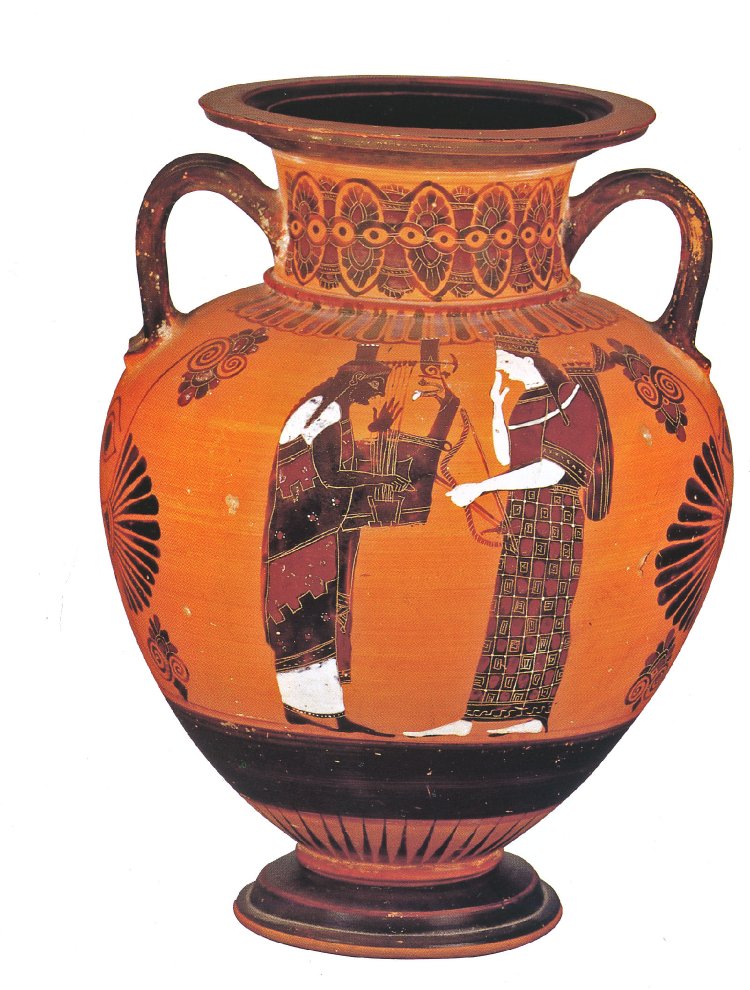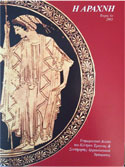July's word: EIMA
 Generic term referring to the dress in general.
Generic term referring to the dress in general.
For those wondering why esthēs is non aspirate, we remind Grassman’s law, during which, among two aspirated consonants that are spaced in a word, here hand θ, the first one looses his aspiration, i.e. *φέ-φυκε> πέ-φυκε.
The word εἷμα derives from *ϝεσ-νυ-μι, the original root being *wes- “to dress” (the aspiration is due to the fall of w/f). It is identified in several IE languages, arm., ind., iran., hitt., old germ., lat. (uestis), and today it. vesta, vestito, fr. vêtement, en. vest, investment, germ. investieren etc.
Εἷμα itself is a very productive derivative: ϝes-mn̥, hence ἕσ-μα, and with the fall of /s/ extension of the previous vowel: ει.
As previously mentioned, the n̥ is realised either as /n/ (not the case here, impossible **mn at the end), or as /a/ as is the case here (cf. τὸν φύλακ-n̥ > φύλακ-α).
From εἷμα (which is found mostly in pl. τὰ εἵματα, «garments, clothes»), aeol. (ϝ)έμματα, κρητ. ϝῆμα, many composita and derivatives: ἀνείμων (without clothes, naked), εὐείμων (with a beautiful dress, well-dressed), κακοείμων (with poor, agly clothes), μελανείμων (dressed in black). Also the diminutive ἱμάτιον (from εἱμάτιον with assimilation) «piece of cloth worn over the chiton”, ἱματίδιον, ἱματιοθήκη, ἱματιοφυλάκιον (wardrobe), ἱματιοπώλης (himation / garments seller), ἱματισμὸς (clothing). Finally ἑανὸς < ϝεσ-ανὸς «woman’s garment», already in Myc. wea2noi> wehanoihi (Dat.).


